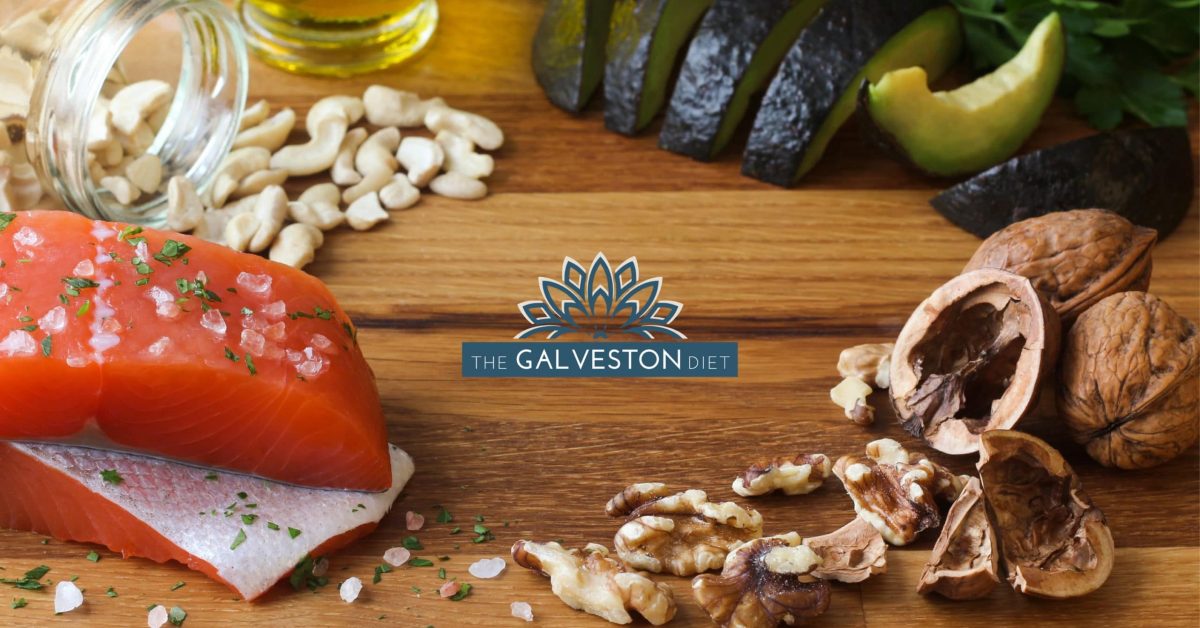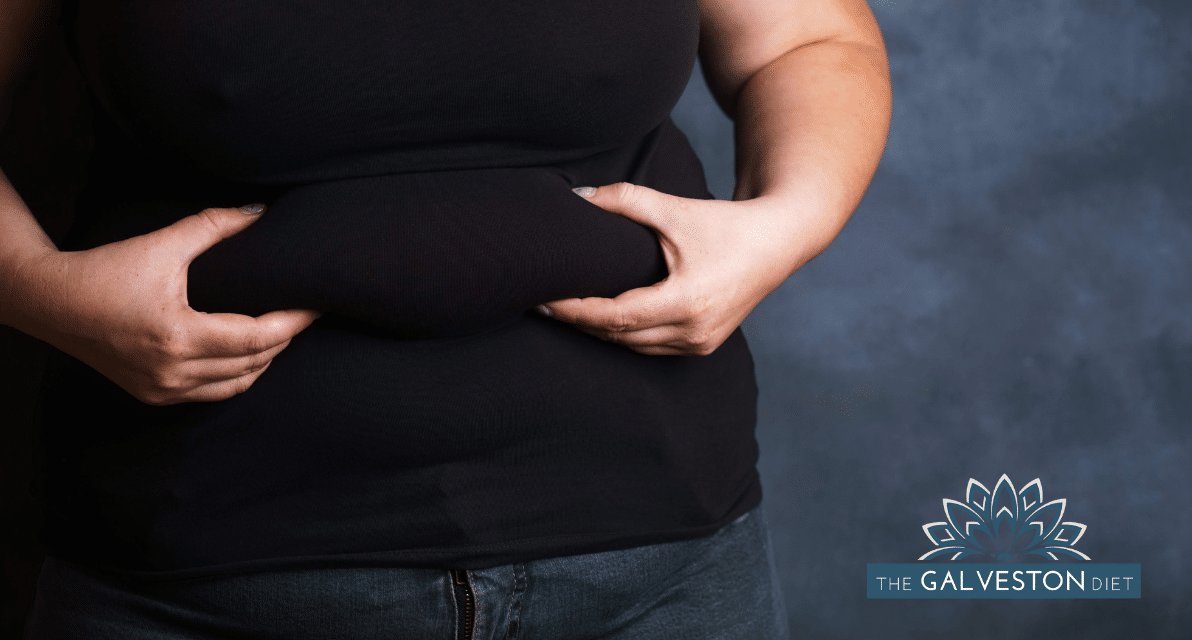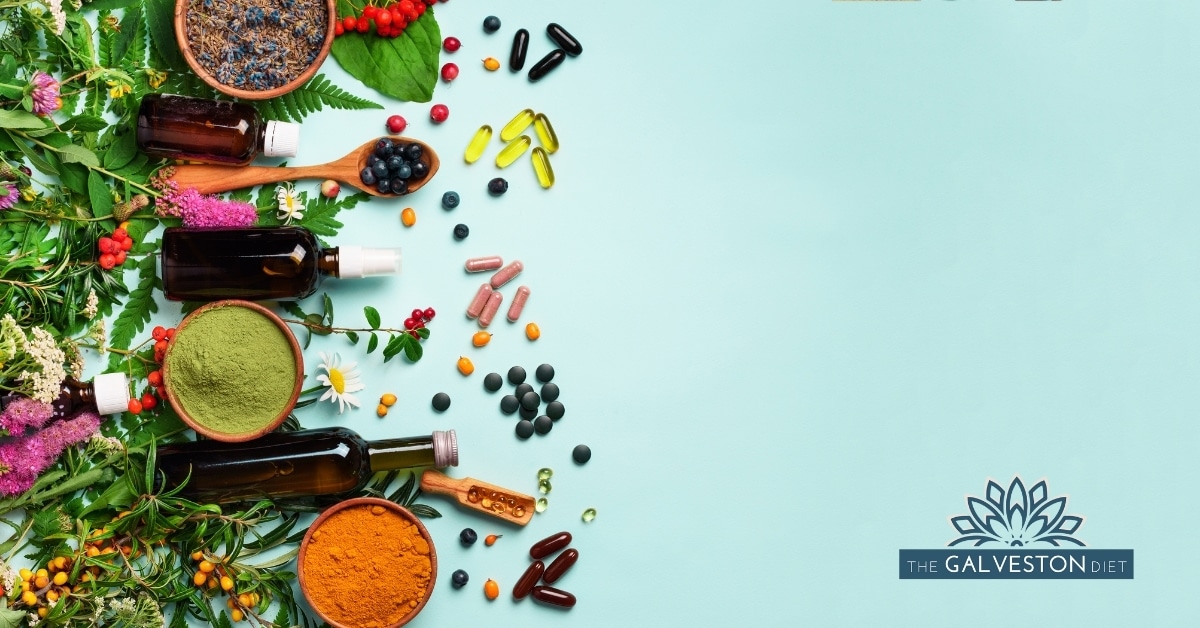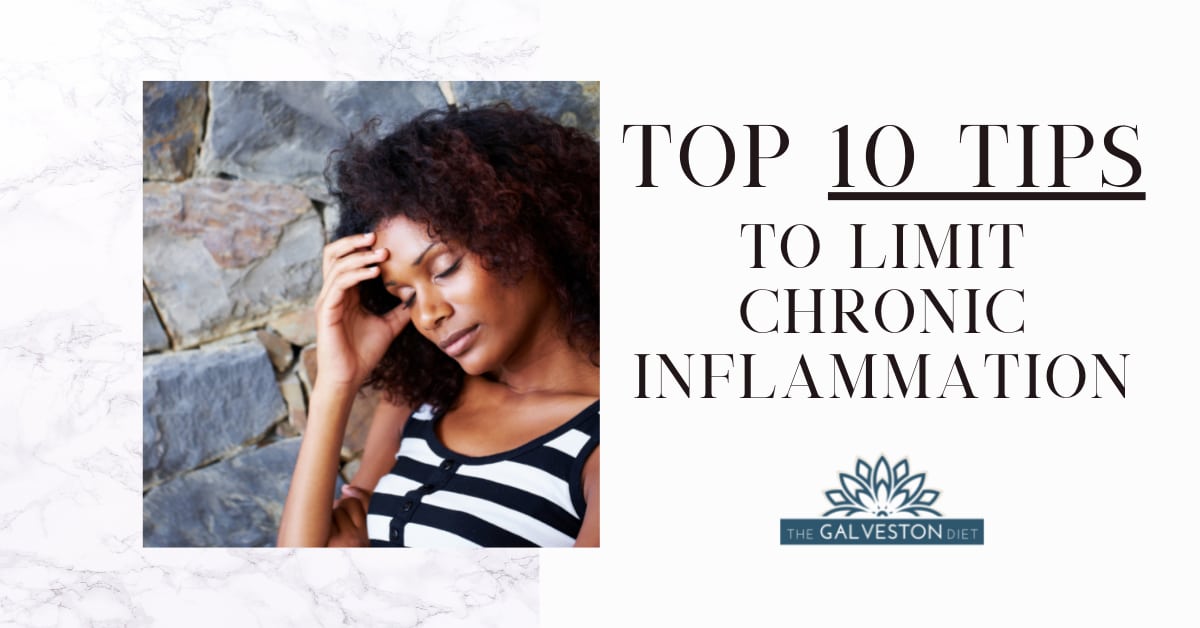Menopause Weight Gain? Inflammation May Be The Culprit
(And 5 Things You Can Do About It Right Now)
It’s apparent that weight loss is much more than just calories in and calories out,1,2 so what are the other variables involved?
Table of Contents
Current research is finding that chronic systemic inflammation is a key player in not only weight gain in midlife but also many chronic disease states.3,4
When inflammation is present, even those with the most disciplined nutrition and fitness routines can struggle to maintain or lose weight.5 You can’t see it or feel it, but chronic inflammation is slowly damaging your body, especially in menopause.
Chronic inflammation increases as part of the aging process. As our cells lose their efficiency due to aging, inflammation naturally increases.6 Estrogen is protective against chronic inflammation – and when our levels start naturally declining in midlife during perimenopause, chronic inflammation increases again.7
The early effects of systemic inflammation in menopause may be ambiguous and go undetected for an extended period of time.
You may feel tired or run down, your sleep patterns may change, your moods may deteriorate quicker than usual, and you may notice you are gaining weight – especially belly fat, and be confused as to why these changes are happening, especially with no changes in your nutrition or exercise habits.
How Can I Test For Chronic Inflammation
These tests are great ways to see if you are inflamed and then use them as a marker after nutrition/lifestyle changes to track progress. However, these markers are nonspecific, meaning that abnormal levels can show that something is wrong but not the exact cause. Since nutrition and lifestyle changes fight so many of the causes of chronic inflammation – it is worth testing.
hsC-reactive protein (CRP)
CRP is naturally produced in the liver in response to inflammation. A high level of CRP in your blood can occur due to several inflammatory conditions.8
Erythrocyte sedimentation rate (ESR)
The ESR test is rarely performed alone, as it doesn’t help pinpoint specific causes of inflammation. Instead, it can help your doctor identify that inflammation is occurring. It can also help them monitor your condition.9
Plasma viscosity
This test measures the thickness of blood. Inflammation or infection can thicken plasma.10

What’s Your Nutritional Inflammation Score?
What can I do to reduce the risk of chronic inflammation?
You can control — and even reverse — inflammation through a healthy, anti-inflammatory diet and lifestyle utilizing these top 5 tips below:
1. Load up on anti-inflammatory foods
Your food choices are just as important as the medications and supplements you may be taking for overall health since they protect against or promote inflammation.
Fruits and vegetables are rich in natural antioxidants and polyphenols: protective compounds present in plants, such as blueberries, apples, and leafy greens.11
Studies have also linked nuts with decreased inflammatory markers and a lower risk of diabetes and cardiovascular disease.12
Coffee and green or black tea, which includes polyphenols and other anti-inflammatory substances, can defend against inflammation.13
Foods containing omega-3 fatty acids have tremendous anti-inflammatory properties. Some of the best sources of omega-3s are cold-water fish, such as salmon and tuna, and tofu, walnuts, flax seeds, and chia seeds.
Other anti-inflammatory foods include grapes, celery, blueberries, garlic, olive oil, tea, and some spices (ginger, rosemary, and turmeric).
2. Cut back or eliminate inflammatory foods
An anti-inflammatory diet, like the Galveston Diet, limits foods that cause inflammation.
Inflammatory foods include processed meats and trans fats, such as margarine, corn oil, high fructose corn syrup, deep-fried foods, artificial colors, artificial flavors, and most processed foods.
Limit or avoid simple carbohydrates, such as white flour, white rice, refined sugar, and anything with high fructose corn syrup.14
3. Make time to exercise
In menopause, to avoid osteoporosis and sarcopenia (loss of bone and muscle mass with age respectively), and decrease inflammation, make time for 75 – 150 minutes of aerobic exercise per week, divided into three sessions. It is also important to include 10 to 25 minutes of weight or resistance training at least four to five times per week.15
4. Work on a healthy gut
To minimize inflammation, improving the gut’s microbial barrier is critical because it will deter potential irritants from getting into the bloodstream through the intestinal wall. To keep the gut biome healthy, try to incorporate fermented foods such as tofu, sauerkraut, kombucha, miso, or kimchi.16
5. Manage stress
Chronic stress contributes to inflammation through elevated cortisol levels. Use meditation, yoga, biofeedback, guided imagery, journaling, exercise, or other methods to manage stress throughout the day.
These five changes in your diet and lifestyle can lower inflammation. If you are unsure of your inflammation levels, we created our very own Nutritional Anti-Inflammation quiz. Check your Daily Inflammation Score here. This quiz will help you determine your relative degree of inflammation for the past 24 hours. The great news? You can take the quiz as many times as you’d like. Please remember that you can make changes slowly for long-term results. The Galveston Diet is about creating new habits that last!
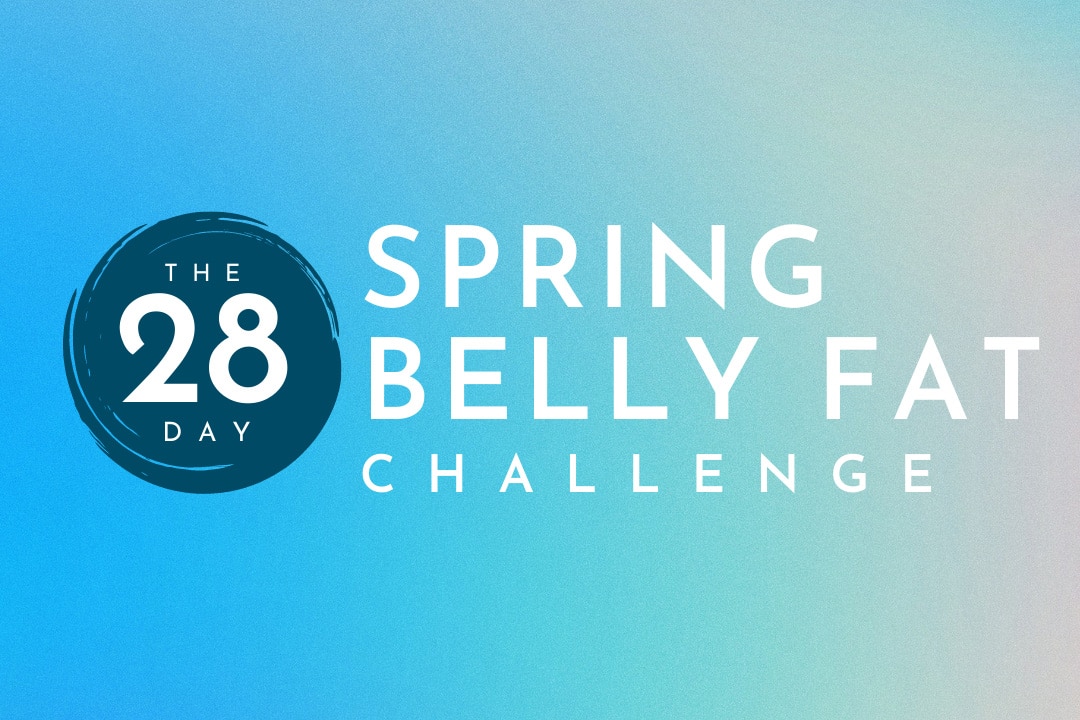
Blast Away Belly Fat!
Sources:
1 https://pubmed.ncbi.nlm.nih.gov/19258409/
2 https://www.ncbi.nlm.nih.gov/pmc/articles/PMC5639963/
3 https://pubmed.ncbi.nlm.nih.gov/23062863
4 https://academic.oup.com/ajcn/article/83/6/1369/4633049
5 https://www.ncbi.nlm.nih.gov/pmc/articles/PMC3819692/
6 https://www.ncbi.nlm.nih.gov/pmc/articles/PMC3423478/
7 https://www.ncbi.nlm.nih.gov/pmc/articles/PMC4226184/
8 https://www.sciencedirect.com/science/article/abs/pii/S0002914903007744
9 https://www.aafp.org/afp/1999/1001/p1443.html
10 https://www.bmj.com/content/344/bmj.e454
11 https://pubmed.ncbi.nlm.nih.gov/26400429/
12 https://academic.oup.com/aje/article/163/3/222/59715
13 https://www.ncbi.nlm.nih.gov/pmc/articles/PMC3130641/
14 https://www.ncbi.nlm.nih.gov/pmc/articles/PMC4579563/
15 https://www.ncbi.nlm.nih.gov/pmc/articles/PMC6279907/
16 https://pubmed.ncbi.nlm.nih.gov/28945458/
If you are interested in learning more about the science behind the Galveston Diet, Click Here.
